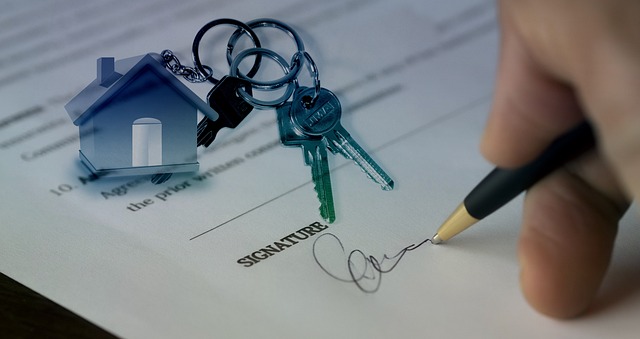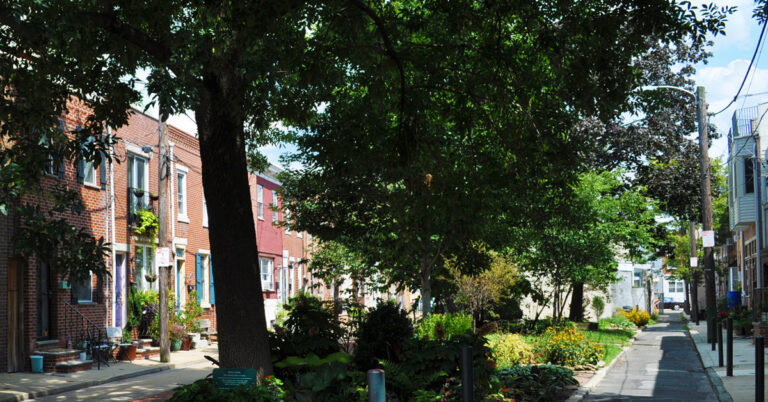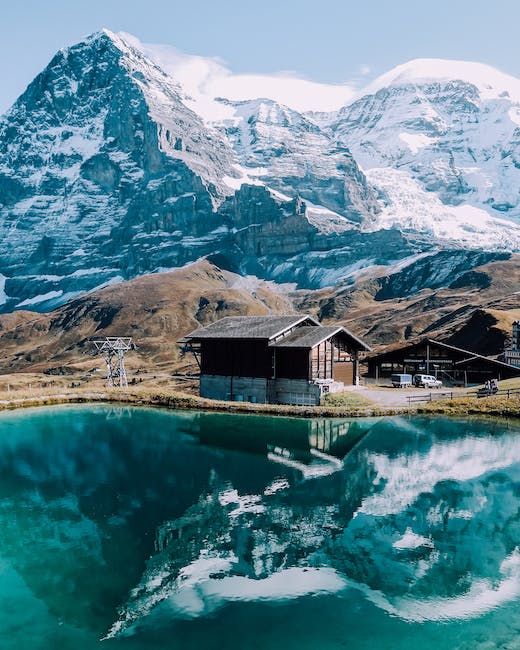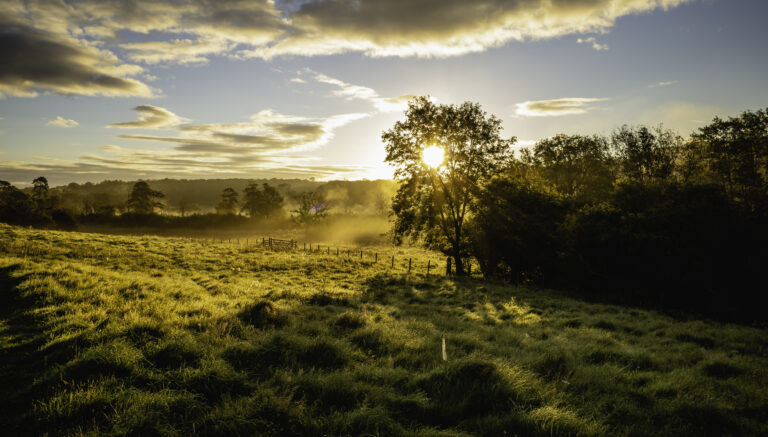Can I Buy Property in South Africa as a Foreigner
If you’re a foreigner eyeing the property market in South Africa, you probably have one burning question on your mind: Can I buy property as a non-citizen? Well, fret not, for this article serves as your trusty guide to navigating the ins and outs of property ownership in the Rainbow Nation. In this straightforward read, we’ll provide you with all the essential information you need to know before making any commitments. So, let’s delve straight into the topic, leaving no room for fluff or fancy words.
Table of Contents
- Introduction: Understanding the Regulations for Foreigners Buying Property in South Africa
- 1. The Legal Framework: Navigating the Property Ownership Laws in South Africa
- 2. Property Types and Restrictions: Exploring Options and Limitations for Foreign Buyers
- 3. Important Considerations: Factors to Evaluate Before Purchasing Property in South Africa
- 4. Top Locations for Foreign Buyers: Spotlight on South Africa’s Desirable Real Estate Markets
- 5. Expert Guidance: Seeking Professional Help When Buying Property as a Foreigner in South Africa
- 6. Financing Your Purchase: Tips for Foreign Buyers on Securing Property Investment in South Africa
- FAQs
- To Conclude

Introduction: Understanding the Regulations for Foreigners Buying Property in South Africa
Welcome to this comprehensive guide that aims to shed light on the intricate regulations surrounding the purchase of property by foreigners in South Africa. If you are considering investing in the beautiful landscapes and vibrant culture of this diverse nation, it is crucial to understand the legal framework that governs property ownership for non-residents.
In South Africa, a set of rules and restrictions have been established to ensure a fair and balanced property market. Foreigners looking to buy property in South Africa must bear in mind the following key points:
- Ownership Limitations: Non-residents are generally allowed to own both movable and immovable property in South Africa, with a few exceptions.
- Residency Permits: Acquiring property does not grant automatic residency rights in the country. Foreigners must follow specific procedures to live in South Africa legally.
- Approval by the South African Reserve Bank (SARB): To purchase immovable property, non-residents are required to obtain a valid SARB approval, which entails a comprehensive review of their financial circumstances.
- Property Rights: While foreigners enjoy the same rights as citizens when it comes to property ownership, it is vital to comprehend the intricacies of the South African legal system to protect your investment effectively.
1. The Legal Framework: Navigating the Property Ownership Laws in South Africa
Understanding the legal framework surrounding property ownership in South Africa is essential for anyone looking to invest in or own property in this vibrant country. The intricate maze of laws and regulations can be challenging to navigate, but with the right knowledge, you can successfully navigate the process.
First and foremost, it’s crucial to be aware that property ownership in South Africa is divided into various categories, each with its own set of rules. These categories include freehold, sectional title, and leasehold, among others. Freehold ownership grants you full ownership and control over the property and is the most common type of ownership. Sectional title ownership, on the other hand, is when you own a specific unit within a larger property, such as an apartment in a building. Lastly, leasehold ownership refers to a long-term lease agreement with a property owner.
To navigate property ownership laws effectively, it’s important to familiarize yourself with the legal requirements and processes involved. This includes understanding the Transferring of Immovable Property Act, which governs the transfer and registration process of property, as well as the Protection of Personal Information Act, which safeguards the personal information exchanged during property transactions. Additionally, being aware of zoning regulations, planning permissions, and any other applicable bylaws will help ensure compliance and avoid legal complications.
In summary, acquiring and owning property in South Africa requires a firm understanding of the legal framework surrounding property ownership. By familiarizing yourself with the different types of property ownership, knowing the relevant laws and regulations, and seeking legal advice when necessary, you can confidently navigate the property ownership landscape in South Africa.
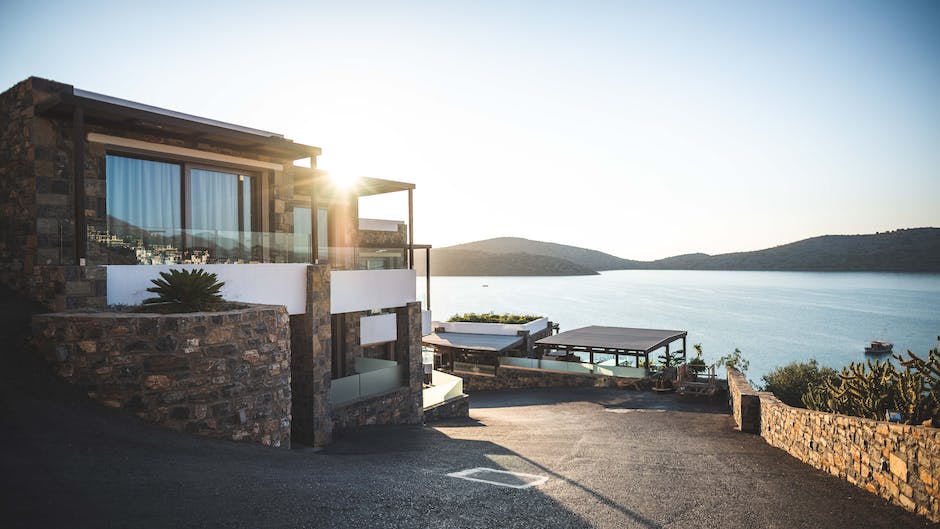
2. Property Types and Restrictions: Exploring Options and Limitations for Foreign Buyers
Foreign buyers looking to invest in real estate have a plethora of options to choose from, each with its own set of restrictions and limitations. Understanding the different property types available can help guide your decision-making process and ensure a successful investment. Here are a few key property types to consider:
1. Condominiums: Condos are a popular choice for foreign buyers due to their low maintenance and convenient amenities. However, it’s important to check local regulations as some countries impose restrictions on foreign ownership, such as limits on the percentage of units that can be owned by non-residents.
2. Single-Family Homes: If you desire more privacy and space, single-family homes provide a great option. Some countries have no restrictions on foreigners purchasing houses, while others may require special permits or have specific rules regarding the size or location of the property.
3. Commercial Real Estate: For those seeking to invest in income-generating properties, commercial real estate can be an attractive choice. However, foreign buyers often encounter more stringent regulations, including the need to establish local partnerships or meet certain investment thresholds.
Navigating the world of property types and restrictions as a foreign buyer may seem overwhelming, but by understanding the options available and considering local regulations, you can make an informed decision that aligns with your goals and investment strategy. Remember to consult with professionals familiar with local real estate laws and seek expert advice to ensure a smooth transaction.
3. Important Considerations: Factors to Evaluate Before Purchasing Property in South Africa
When it comes to investing in property in South Africa, there are several key factors that need thorough evaluation before making a purchase. These considerations can help you make an informed decision and ensure that you choose the right property to suit your needs and goals.
Location: One of the most crucial factors to evaluate is the location of the property. Are you looking for a bustling urban environment or a serene coastal town? Consider the proximity to amenities, such as schools, hospitals, and shopping centers, as well as any future development plans for the area. Research the neighborhood’s safety, accessibility, and overall desirability to determine if it aligns with your preferences and future prospects.
Budget: Determining your budget upfront is essential in navigating the property market in South Africa. Evaluate your financial capabilities and set a clear budget that includes not only the purchase price but also additional costs such as transfer duties and legal fees. Be realistic about what you can afford and explore financing options if necessary. Understanding your budget will help you narrow down your search and focus on properties that are within your financial means.
Market conditions: Keep a close eye on the current property market conditions. Are prices rising or falling? Are there any legislative changes or economic factors that may impact property values? Stay informed by following real estate news and consulting with reputable agents to make a well-timed investment decision.
Property type: Consider the different property types available, such as apartments, houses, or even vacant land. Each comes with its own advantages and disadvantages, so think about your lifestyle, preferences, and long-term goals when making a choice.
Legal considerations: Ensure you understand the legal aspects of purchasing property in South Africa. Consult with legal professionals to guide you through the process, including obtaining the necessary permits, registering the property, and understanding any restrictions or limitations that may apply.
By carefully evaluating these important factors, you can make an informed decision and successfully navigate the South African property market. Remember to thoroughly research and seek professional advice to ensure a smooth and rewarding property purchase experience.

4. Top Locations for Foreign Buyers: Spotlight on South Africa’s Desirable Real Estate Markets
South Africa’s real estate market has become an attractive hub for foreign buyers, offering a wide range of desirable locations. Here, we will shine a spotlight on some of the top destinations that have captured the attention of international investors.
1. Cape Town: Nestled between the majestic Table Mountain and the glistening Atlantic Ocean, Cape Town is a dream location for foreign buyers. With its stunning beaches, vibrant city life, and rich cultural heritage, it offers a dynamic mix of natural beauty and urban living.
2. Johannesburg: As South Africa’s largest city, Johannesburg boasts a thriving business scene and a cosmopolitan lifestyle. Foreign buyers are drawn to its bustling energy, modern infrastructure, and diverse property options. Whether it’s trendy apartments in the city center or lavish suburban homes, Johannesburg has it all.
3. Durban: Located along the breathtaking coastline of the Indian Ocean, Durban combines a laid-back beach lifestyle with a booming economy. Its warm climate, world-class surf spots, and vibrant multicultural atmosphere make it an irresistible choice for foreign buyers seeking a relaxed yet vibrant coastal experience.
4. Knysna: Tucked away in the picturesque Garden Route, Knysna is a haven for nature lovers. Foreign buyers are captivated by its lush forests, serene lagoons, and charming coastal villages. With a slower pace of life and a strong sense of community, Knysna offers a tranquil escape from the hustle and bustle of city living.
Explore these top locations in South Africa and discover the endless opportunities they hold for foreign buyers. Whether you seek a cosmopolitan lifestyle, pristine beaches, or a serene natural retreat, South Africa’s real estate markets have something to offer for everyone.
5. Expert Guidance: Seeking Professional Help When Buying Property as a Foreigner in South Africa
When it comes to navigating the complexities of buying property as a foreigner in South Africa, seeking expert guidance is crucial. Professionals with extensive knowledge of the local real estate market can provide valuable insights and ensure a smooth and successful transaction. Here are some reasons why it’s important to enlist the help of professionals:
- Legal Expertise: Foreigners need to comply with specific regulations and laws when purchasing property in South Africa. Qualified professionals can guide you through the legal process, ensuring all necessary paperwork is in order.
- Market Insights: Understanding the local real estate market is essential for making informed decisions. Experts can provide up-to-date information on property prices, trends, and investment opportunities, helping you choose the right property at the right price.
- Negotiation Skills: Negotiating the best deal requires experience and expertise. Professionals can represent your interests, advocating for fair terms and conditions during the buying process.
By seeking professional help, you can minimize potential risks and enjoy a more streamlined property buying experience in South Africa. Collaborating with experts who understand the intricacies of the market will give you peace of mind and increase your chances of finding your dream property.
6. Financing Your Purchase: Tips for Foreign Buyers on Securing Property Investment in South Africa
When it comes to securing your dream property investment in beautiful South Africa, financing plays a crucial role for foreign buyers. Here are some essential tips to help you navigate the process with confidence:
- Research Local Financial Institutions: Start your journey by researching and identifying reputable local financial institutions that specialize in serving foreign buyers. Look for institutions with experience in handling international transactions and a solid track record.
- Understand the Loan Options: Familiarize yourself with the loan options available for foreign buyers. Whether it’s a conventional mortgage or specialized financing plans, know the pros and cons of each option and assess which one aligns with your financial goals and circumstances.
- Evaluate Currency Exchange Rates: Don’t overlook the impact of currency exchange rates on your investment. Monitor the rates and consult with professionals to strategize on the best times to transfer your funds, ensuring you maximize your purchasing power.
- Secure Pre-Approval: Before beginning your property search, obtain pre-approval from a financial institution. This step will not only give you a clear idea of your budget but also demonstrate your seriousness to sellers, boosting your chances of negotiations and securing the property you desire.
Securing property investment in South Africa may seem daunting, but with proper financing strategies in place and thorough research, foreign buyers can confidently embark on their journey towards property ownership in this captivating country.
FAQs
Q: Can I buy property in South Africa as a foreigner?
A: Yes, foreigners are allowed to buy property in South Africa. However, there are some rules and regulations that need to be considered.
Q: What are the restrictions?
A: Non-residents are permitted to purchase both residential and commercial property in South Africa. There are no limits on the number of properties a foreigner can purchase, but certain areas may have restrictions on land ownership.
Q: Are there any special requirements for foreigners?
A: Foreigners need to obtain a valid visa to legally purchase property in South Africa. This visa should allow for long-term residence or at least show a valid intent to reside in the country.
Q: Can I own the property outright?
A: Yes, foreigners can own property outright in South Africa. There is no requirement for a South African partner or co-owner.
Q: Are there any additional costs or taxes for foreigners?
A: Yes, as a foreigner, you will be subject to various costs and taxes when buying property in South Africa. These may include transfer duties, legal fees, and possibly capital gains tax upon selling the property.
Q: Can I finance my property purchase?
A: Yes, some South African banks offer mortgage loans to foreigners for property purchases. However, the criteria and conditions for these loans may differ from those for South African citizens. It is advisable to consult with a financial advisor or bank representative for more specific information.
Q: Can I rent out the property?
A: Absolutely! Foreigners are allowed to rent out the property they own in South Africa. This can provide a great investment opportunity or additional income source.
Q: Are there any restrictions on repatriating funds?
A: There are generally no restrictions on repatriating funds from the sale of property in South Africa. However, it is advisable to consult with a financial advisor or tax specialist to ensure compliance with any currency regulations or tax obligations.
Q: Should I consult with a lawyer or real estate agent?
A: It is highly recommended to seek professional help from a lawyer specializing in property transactions or a reputable real estate agent. They can guide you through the legal process, ensure all necessary paperwork is in order, and address any concerns specific to your situation.
Future Outlook
In conclusion, buying property in South Africa as a foreigner is indeed possible. While there are some restrictions and regulations to abide by, the process is relatively straightforward. By familiarizing yourself with the laws, seeking professional advice, and understanding the local property market, you can navigate through the buying process smoothly. Remember that acquiring property in South Africa can be a rewarding investment, offering you the chance to enjoy its natural beauty and diverse culture. So, whether you’re looking for a holiday home or a long-term investment, don’t hesitate to explore the opportunities available and make your dreams a reality in this captivating country.

